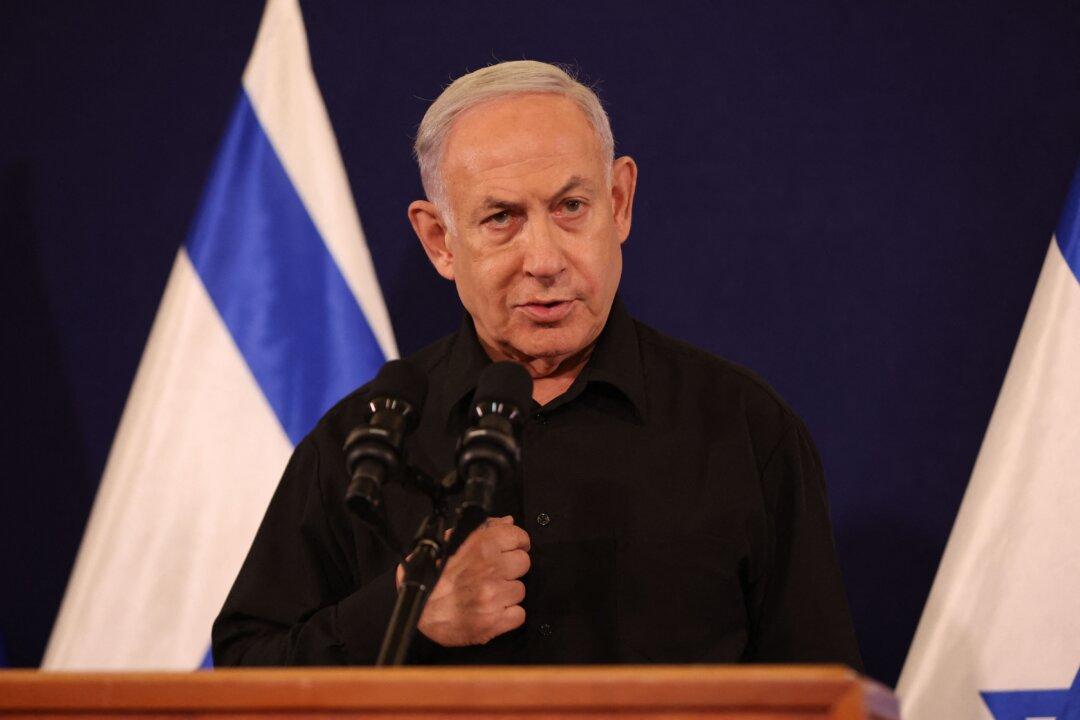Israeli Prime Minister Benjamin Netanyahu is resisting U.S. calls for a “humanitarian pause” in its fight against Hamas in Gaza, insisting that there would be no temporary cease-fire until the 240 or so hostages held by the terror group are freed.
In the last several days, both President Joe Biden and U.S. Secretary of State Antony Blinken have called for a temporary pause in the Israel-Hamas war in order to facilitate the flow of aid into Gaza, where Israel’s forces have been hunting Hamas operatives in response to the group’s slaughter of hundreds of Israeli civilians.





